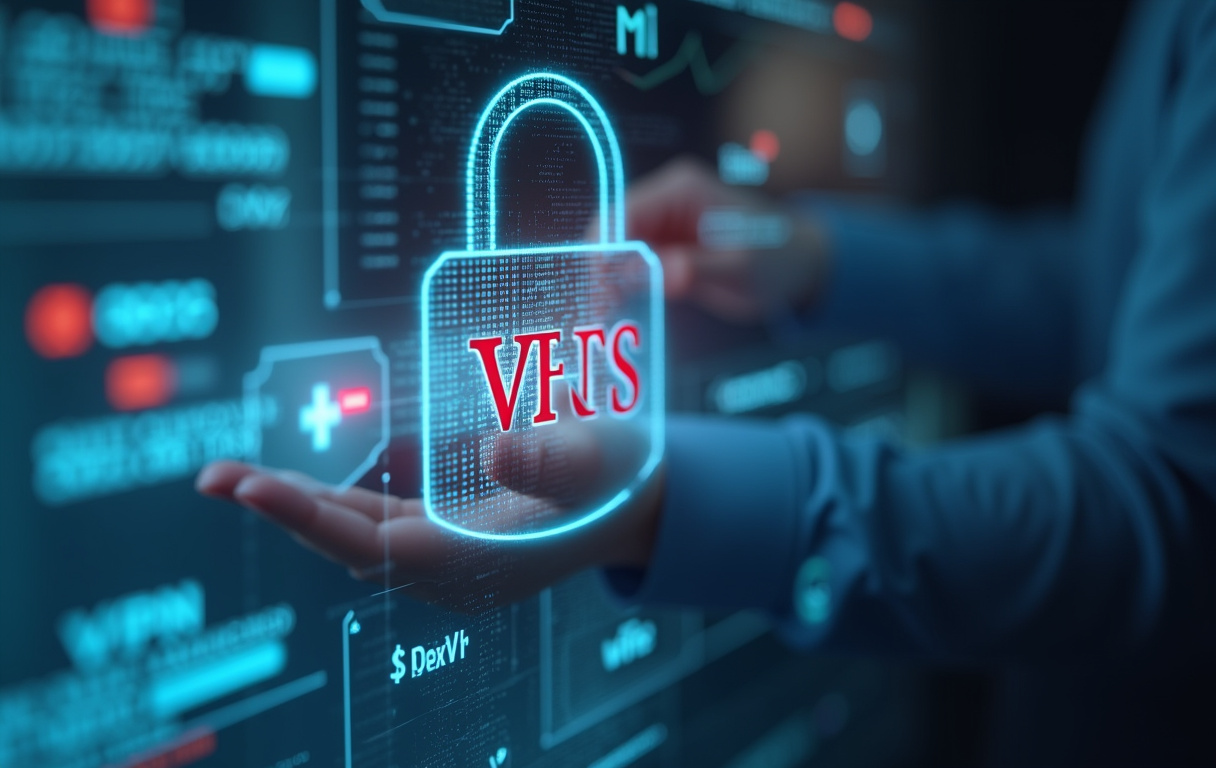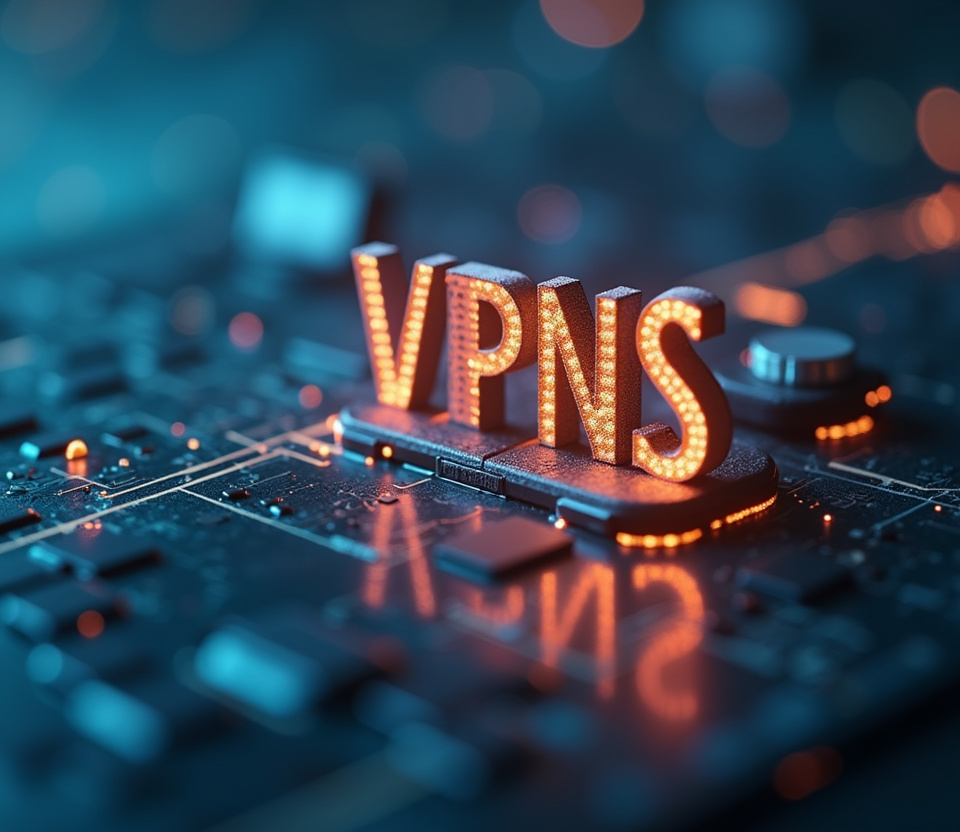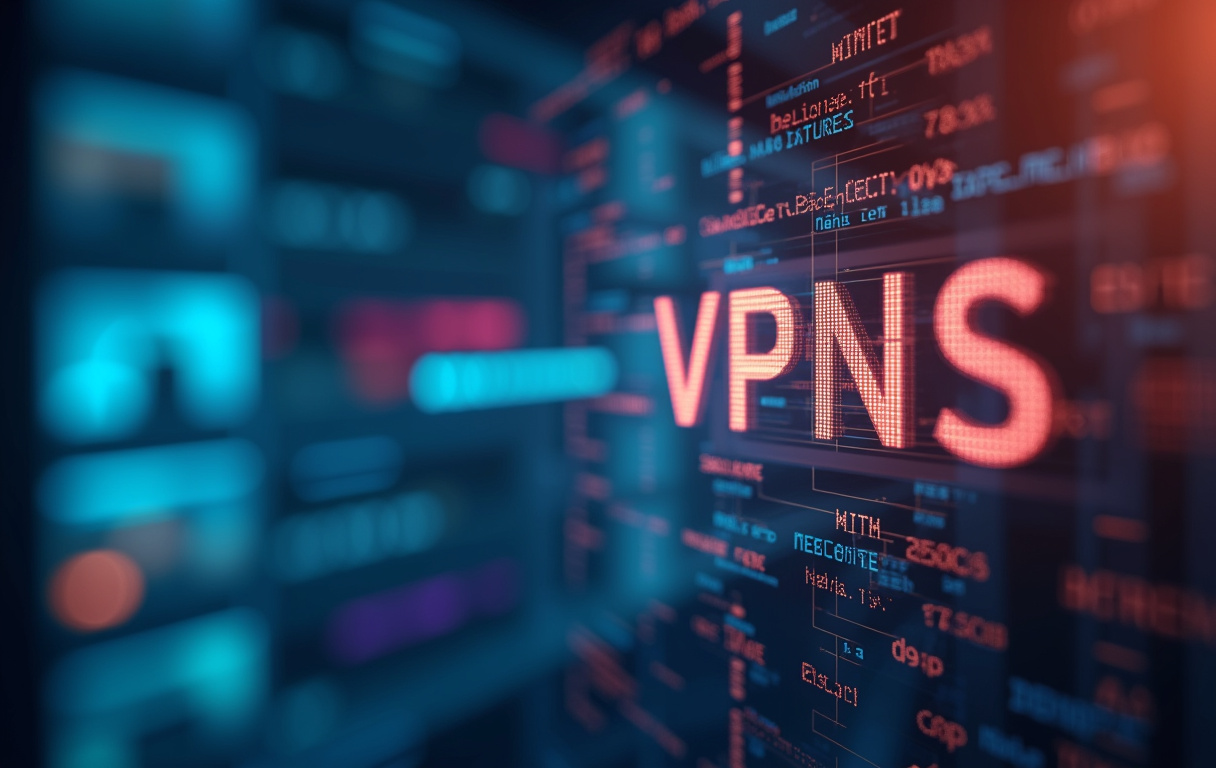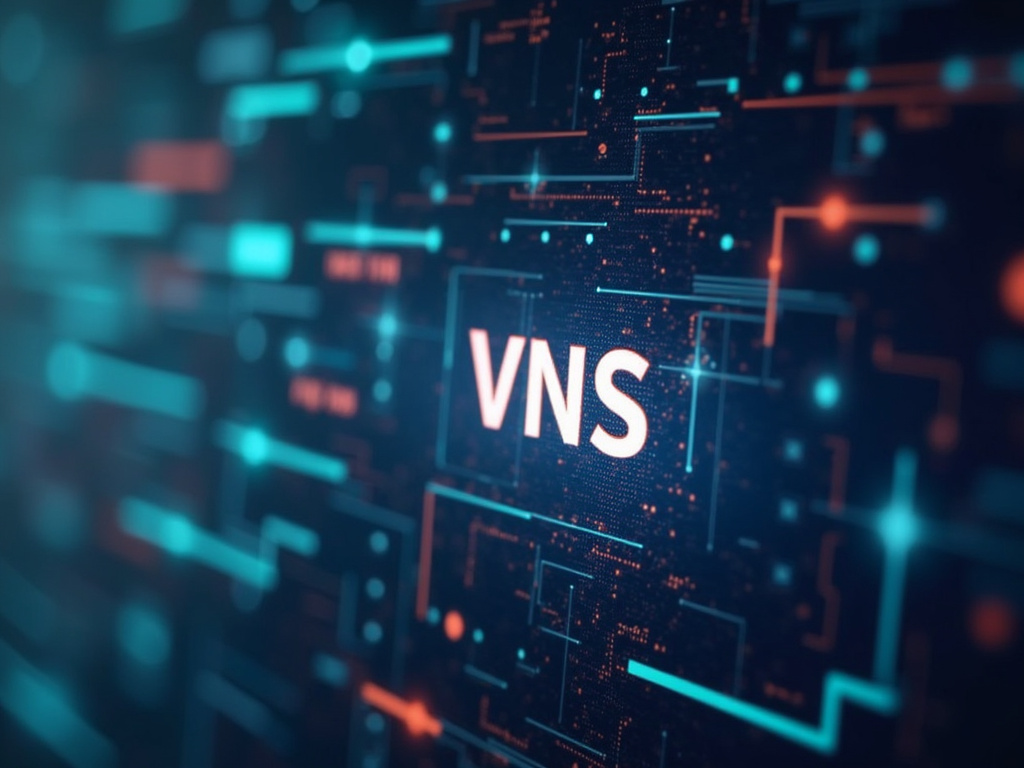VPNs for Human Resource Teams: Securing Employee Data

Table of Contents
employee data security
In today's hyper-connected digital landscape, the Human Resources (HR) department stands as a critical repository of highly sensitive employee data. From personal identifiable information (PII) like social security numbers and addresses to confidential performance reviews and salary details, HR systems hold the keys to a vast trove of information that must be rigorously protected. The consequences of a data breach impacting HR can be devastating, leading to not only financial losses and reputational damage, but also legal ramifications and a erosion of employee trust.
Therefore, robust data security practices are paramount for HR teams, and implementing a Virtual Private Network (VPN) is an increasingly crucial component of a comprehensive strategy for establishing robust . A well-configured acts as a secure tunnel, encrypting all data transmitted between HR staff and the organization's network, shielding it from prying eyes and potential cyber threats. Without such protection, sensitive employee information could be vulnerable to interception by malicious actors lurking on public Wi-Fi networks or within compromised systems.
The need for heightened vigilance is further amplified by the growing trend of remote work and distributed teams. As HR professionals increasingly access and manage employee data from various locations, the risk of data exposure escalates dramatically. A provides a consistent layer of security, regardless of the employee's location, ensuring that sensitive information remains protected even when accessed from unsecured networks.
This is particularly critical when dealing with international HR operations, where varying data privacy regulations and security standards add further complexity. Furthermore, the implementation of a VPN is no longer a "nice-to-have"; rather, it is often a compliance requirement under various data protection laws and regulations. GDPR, CCPA, and other similar mandates impose stringent obligations on organizations to safeguard personal data, and using a VPN can demonstrate a proactive commitment to data security and compliance.
Moreover, a VPN for HR will significantly improve . The encryption layer ensures that sensitive HR operations, such as payroll processing or benefits enrollment, are protected from manipulation or interference by malicious actors. This helps maintain the accuracy and reliability of these crucial processes, preventing potentially costly errors or fraudulent activities.
By establishing a secure and controlled environment for data access and transmission, HR teams can mitigate the risks associated with unauthorized access, data breaches, and non-compliance, ultimately ensuring the confidentiality, integrity, and availability of employee data. Thus, strategically deploying VPN technologies emerges as a cornerstone in the fortifying the HR security posture. The importance intensifies as organizations embrace cloud-based HR solutions, where data traverses public networks, further exposing it to potential threats.
Integrating a VPN with cloud HR systems establishes an extra security layer, safeguarding data both in transit to and at rest within the cloud environment. This holistic protection is essential in an age where cyberattacks are becoming more sophisticated and targeted, and the need to manage security across multiple layers intensifies. A key aspect to understand is that a VPN is not a silver bullet, but a means of enhancing overall security.
It should integrate within a framework, coupled with other security measures such as strong passwords, multi-factor authentication, and regular security audits. When correctly implemented, a VPN becomes an indispensable component. HR departments also deal with matters that can involve legal sensitivity or compliance with employment law, making the security of related data even more crucial.
Proper protection can contribute meaningfully to adherence to legal and regulatory requirements. The use of a well-implemented, robust VPN can enhance , bolster , and solidify overall data governance within an HR framework.
information protection
Beyond the fundamental privacy and security benefits, VPNs offer a host of indirect advantages that contribute to enhanced HR operations. One key advantage lies in the ability to bypass geographic restrictions and access resources as if the user were physically located within the organization's network. This is especially beneficial for HR teams operating in international settings, where access to specific region-locked databases or applications may be required.
By masking the user's true IP address and routing traffic through a server within the desired location, a VPN effectively unlocks access to these restricted resources, improving efficiency and collaboration. Another critical area where VPNs bolster HR effectiveness is in safeguarding sensitive communications. HR teams often engage in confidential conversations with employees and third-party vendors regarding sensitive matters such as disciplinary actions, medical information, or legal proceedings.
A VPN ensures that these communications are encrypted and protected from interception, both in transit and at rest. This is especially important when using VoIP (Voice over Internet Protocol) services or collaborating via online messaging platforms, as these channels are inherently vulnerable to eavesdropping without proper encryption. The ability to conduct sensitive discussions with confidence and peace of mind is invaluable for maintaining trust and confidentiality within the HR function.
In many cases, HR departments are the initial point of contact in sensitive internal investigations, necessitating discreet and secure communication channels. VPNs ensure that these communications cannot be directly traced to the HR users and that sensitive data recovered in such investigations cannot be compromised through the network. Moreover, effective is enabled by leveraging the logging capabilities often built-in within VPN software.
In contrast to common user-facing applications, a VPN client can be instructed to maintain a detailed and tamper-proof log of all network activity. This log can provide invaluable insights into potential security incidents, helping HR teams identify suspicious patterns, track down security breaches, and conduct thorough investigations. This level of visibility is crucial for maintaining a proactive security posture and responding effectively to emerging threats.
A VPN can also play a significant role in supporting compliance efforts related to data residency requirements. Certain jurisdictions mandate that personal data be stored and processed within their borders. A VPN can be configured to ensure that all traffic originating from or destined for a particular location is routed through a server within that jurisdiction, satisfying data residency requirements and minimizing the risk of non-compliance.
This capability is particularly useful for multinational organizations with operations in multiple countries, enabling them to comply with a patchwork of data protection regulations. The multi-faceted advantage of employing a sound VPN solution within HR teams extends beyond merely masking network traffic; it constitutes an integral asset towards compliance, secure communications, auditing ability, and operational efficiency. The utility of an further extends to bolstering the security of employee self-service portals.
These portals provide employees with access to their personal information, benefits enrollment tools, and other sensitive resources. By requiring employees to connect through a VPN before accessing these portals, HR departments can significantly reduce the risk of unauthorized access and data breaches. This is particularly important for employees who access the portal from public Wi-Fi networks or personal devices, which may be more vulnerable to cyber threats; this is how a tool to improve transforms into one to improve security in all HR areas.
VPN for HR
The process of selecting and implementing a should be carefully considered, taking into account the specific needs and requirements of the organization. A generic VPN service designed for personal use may not provide the necessary features and security capabilities demanded by a corporate environment. Instead, HR departments should prioritize enterprise-grade VPN solutions specifically designed for business use.
These solutions often offer advanced features such as centralized management, granular access controls, and robust logging capabilities. One crucial aspect to consider when choosing a VPN provider is the level of security and encryption protocols used. Look for VPNs that support strong encryption algorithms such as AES-256, which is widely considered to be the gold standard for data encryption.
Also, ensure that the VPN uses secure tunneling protocols such as OpenVPN or WireGuard, which are known for their robust security and performance. A VPN's security and effectiveness are intricately linked with its logging policy. HR departments should strictly avoid VPN providers that retain extensive user activity logs, as this information could be subpoenaed by law enforcement or compromised in the event of a data breach.
Ideally, the VPN provider should adhere to a strict "no-logs" policy, meaning that they do not store any information about user activity, such as browsing history or IP addresses. However, HR executives should be cautious as they ensure the privacy and reputation of the company, so they need to review the company’s policies before any hiring. Another key factor to evaluate is the VPN's performance and reliability.
A slow or unreliable VPN can significantly impact productivity and frustrate HR staff. Look for VPN providers with a large network of servers located in various geographic regions, as this can help minimize latency and improve connection speed. Furthermore, ensure that the VPN provider offers robust customer support, so that any technical issues can be resolved quickly and efficiently.
Scalability is yet another critical consideration, mainly when companies plan to expand the number of employees or branch offices; that means scalability should always be prioritized. Choose a VPN solution that can easily scale to accommodate the organization's growing needs. Many enterprise-grade VPNs offer flexible licensing options that allow you to add or remove users as needed.
As security is of utmost importance, make sure the VPN solutions are compatible with the existing security infrastructure to facilitate security and ensure a more agile response system. The HR function needs to maintain audit trails. VPNs provide excellent capabilities for doing exactly that.
By diligently inspecting VPN logs, companies can detect unusual patterns, pinpoint plausible violations, and conduct comprehensive probes. Finally, consider the cost of the VPN solution; there will be several providers that will offer different packages. Enterprise-grade services often imply higher prices, but keep in mind that investing in a robust solution is worthwhile, considering the potential security and compliance risks.
Thoroughly assess pricing models and also compare them to each other to pick out the one that is cost-effective.
VPN for HR
The implementation of a requires careful planning and execution to ensure seamless integration into existing IT infrastructure and HR workflows. Before deploying the VPN, it is essential to conduct a thorough assessment of the organization's security needs and identify any potential vulnerabilities. A dedicated IT team should work closely with HR professionals to understand the specific data security requirements and compliance obligations.
This assessment should also include a review of existing security policies and procedures to identify areas where the VPN can provide additional protection. Once security needs are identified, the IT staff can move to the configuration process. This involves configuring the VPN server, installing VPN clients on HR employees' devices, and setting up security policies.
During the setup of the VPN configuration, it's vitally important to enforce rigorous access rules. This ensures that only authorized personnel can view sensitive employee data by allocating different permissions to the network. The principle of least privilege should be followed vigilantly, granting rights to the bare minimum needed to do the job.
Multi-factor authentication, with a strong password policy and regular upgrades, presents a safeguard against unauthorized access. Also, organizations should develop comprehensive guidelines and training materials for HR employees; these should include instructions on how to connect to the VPN, best practices for data security, and procedures to follow in the event of a security incident. Training is essential to create a security-conscious culture and empower employees to make informed decisions about data protection.
It will also address how a works and how to properly use all of its features. To ensure that the VPN is functioning correctly, HR must have periodic tests; they should include testing the encryption strength, checking for data leaks, and verifying that access controls are working as expected. Addressing any problems at the right time contributes to security and ensures optimal performance.
It also ensures that any breaches or vulnerabilities are swiftly addressed with an effective system for incident response. Implementing the VPN is a continuous task; therefore, companies should be vigilant in monitoring its performance and review system logs or network activity to detect odd patterns. By implementing clear communication channels between IT and HR, it is guaranteed that new security risks or violations will be reported immediately, and also it guarantees compliance with the latest security standards.
Moreover, it is crucial to update the VPN software continuously along with security protocols to face a threat.
process integrity
In conclusion, implementing a robust VPN solution is no longer optional but essential for HR teams seeking to protect sensitive employee data, maintain , and ensure compliance with evolving data protection regulations. A well-configured provides a vital layer of security, encrypting data in transit, masking IP addresses, and providing secure access to restricted resources. The advantages extend beyond basic security, offering enhanced communication protection, audit tracking, and support for data residency requirements.
When choosing a , organizations should prioritize enterprise-grade solutions that support strong encryption, adhere to strict no-logs policies, offer robust performance, and seamlessly integrate with existing IT infrastructure. Careful planning and implementation are crucial, including conducting thorough security assessments, configuring granular access controls, developing comprehensive training materials, and establishing clear communication channels between IT and HR. Continuous monitoring, regular security audits, and proactive incident response are essential to maintaining a strong security posture; It is also useful to check .
By taking these steps, HR teams can create a secure and compliant environment for protecting employee data.
Stay Updated
Get the latest VPN news, tips, and exclusive deals to your inbox.




